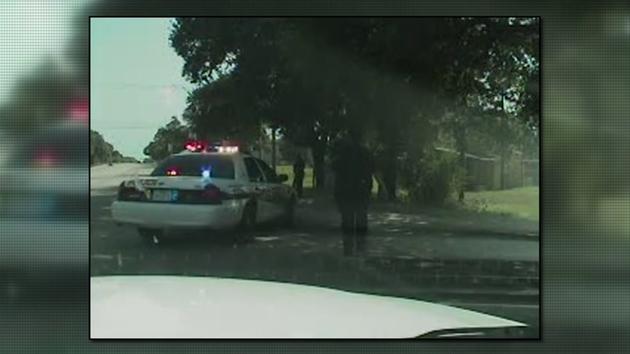As more footage of the late Sandra Bland’s final hours of life spirals onto the desks of talking heads and news channel producers, I think it’s important to acknowledge the ability of film to distort and desensitize us to the abuse of another human being.
We live in an age and culture where we have seen so much abuse on film and television screens that at a certain point, it merely becomes a spectacle to observe, regardless of whether it is “real” abuse or not. The comfort provided by the distance and space encapsulated on a screen provides us with a sense of detachment, which is as empowering as it is dangerous.
It is empowering because we can see and analyze abuse taking place on film or video, but dangerous because we cannot feel the physical and cognitive abuse experienced by the people being abused on film. Thus, while some of us might be considerably horrified at seeing a fellow human being treated like an animal on the screen, the feeling of horror provides us with a false or minuscule understanding of the lived experience of having your body violated by the hands of another in a physical attack.
Having your body violated by anyone is a harrowing sequence of traumatization in and of itself, but in the case of police violence, this horror is exacerbated by the fact that the inflictor of that trauma is sanctioned by an institution that literally surrounds you and leaves no viable escape route.
To name just one such instance: When police take you into custody, they attack you not just with their own imposing, uniformed bodies, but with the bodies of concrete walls that limit your eyesight, the bodies of voyeuristic police cameras watching your every move, and with the bodies of cold steel handcuffs that weigh down your wrists, as well as other instruments that enclose themselves upon your body.
The comfort provided by the distance and space encapsulated on a screen provides us with a sense of detachment, which is as empowering as it is dangerous.
Because of this, we cannot and will never understand abuse by watching a film or reading a description of it; we can only feel it to understand it, and even that understanding will be limited by the frequency at which we experience such abuse.
Here, it should noted that black people in America have faced more of this type of psychological, political, and ultimately physical violence than any other group of people since—to quote the great Angela Davis—“the time the first black person was kidnapped from the shores of Africa.”
At the same time, while it is fundamental to acknowledge how the color of our skin is extremely important in determining our treatment at the hands of our government, it is my opinion that racial makeup is still second to the size of our pockets and the wealth controlled by our heritage. To paraphrase Chicago slam poet Alvin Lau on the success of Tiger Woods: If you’re rich, you don’t have to worry about stupid shit like this.
This is where it gets complicated: as an increasing number of white middle class Americans continue to fall into the cracks of poverty alongside the people of color they may have once presumed themselves to be above, the current trends of police and state violence suggest that the rights afforded to such white Americans will also suffer impoverishment.
The vast majority of people victimized by the power dynamic of the United States since its inception have had black- and brown-skinned bodies, but there are myriads of poor white bodies across the country that have been imprisoned as well. And it’s not because of the color of their skin, but because of the scarcity of resources with which they’re able to defend themselves as poor people, standing in the way of a government that feasts on poor people.
…we cannot and will never understand abuse by watching a film or reading a description of it; we can only feel it to understand it…
In turn, at the same time that we become increasingly tolerant of the violent defense of this hierarchy when it is captured and viewed on screen, our country is witnessing the concentration of wealth into fewer and more vicious hands than ever before.
Unless we recognize and support the Americans fighting for a better way for our country now—those black and brown people organizing alongside white allies—this power dynamic is just the tip of the iceberg of the Land of the Free and Home of the Brave of the Future, one piece of violent footage at a time.
